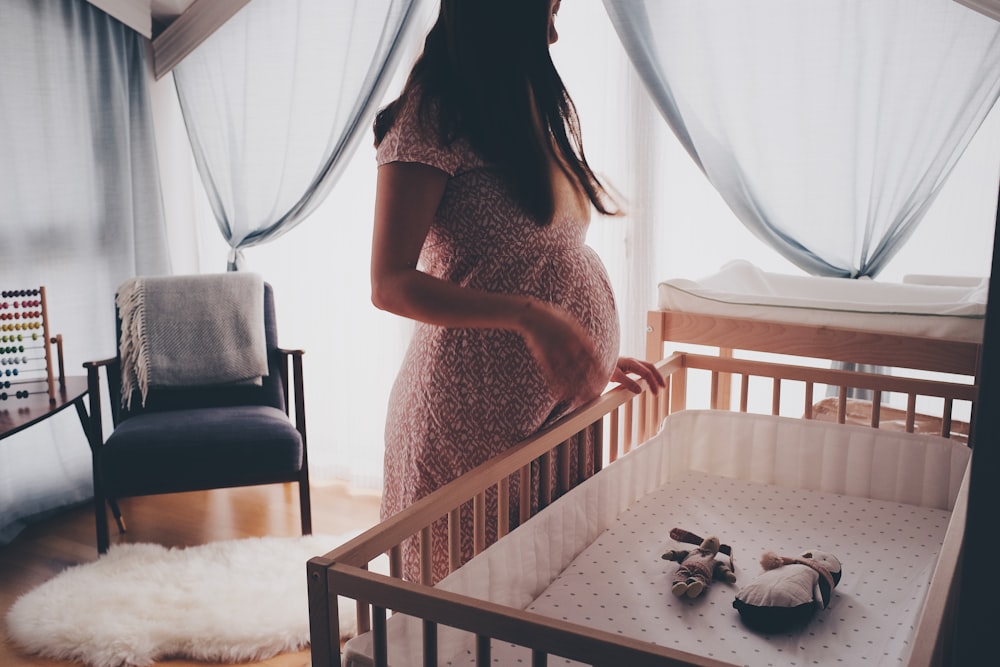Individuals who are soon to be parents are often warned about the lack of sleep they’ll have in the months and years ahead. What some women may not realize, however, is that sleep troubles can actually begin during pregnancy. Changing hormones and a growing baby can lead to significant sleep disturbances.
One commonly overlooked sleep disturbance that can occur during pregnancy: the onset of obstructive sleep apnea.
During obstructive sleep apnea, the body’s breathing passages temporarily close off during sleep. This can lead to shallow breathing or temporary pauses in breathing that last for several seconds. Eventually, the body will force itself awake to restart the breathing process. While the person suffering from sleep apnea typically doesn’t remember these nighttime awakenings, obstructive sleep apnea will significantly diminish their sleep quality.
Left unchecked, obstructive sleep apnea can pose a health risk to both pregnant mothers and their unborn children. Here’s what you should know.
Why is Sleep Apnea More Likely During Pregnancy?
Some people are naturally at greater risk of obstructive sleep apnea than others. This includes individuals who are overweight or obese and those with a wide neck circumference, as an increase in fatty tissue makes airway blockages more likely. Individuals with a large tongue or adenoids are also more likely to experience obstructive sleep apnea.
Regardless of preexisting risk factors, all women are at increased risk of developing sleep apnea during pregnancy. This is in part because of rising levels of the hormones progesterone (which helps regulate the body’s oxygen consumption) and estrogen.
During pregnancy, high estrogen levels can increase the likelihood of nasal congestion, which can swell the lining of the airways and restrict airflow. As the uterus expands, the body’s oxygen consumption increases, while at the same time, the lung’s functional capacity is reduced.
Because you need more oxygen at a time when your lungs have less capacity, the risk for obstructive sleep apnea events greatly increases. In some cases, the weight gain associated with pregnancy can also increase the risk for sleep apnea, though this is more common with women who were already overweight prior to their pregnancy.
Potential Sleep Apnea Complications
For all people, night after night of restless sleep can take a significant toll on both their physical and emotional well-being. Individuals with obstructive sleep apnea suffer from extreme fatigue that interferes with daily activities, including work and school. They may become irritable and have trouble concentrating. Some people become so tired that they fall asleep while driving or while participating in normal daily activities.
Interrupted sleep also puts more strain on the cardiovascular system, increasing the risk for high blood pressure, diabetes, and other life-threatening health concerns. Anxiety and depression are also common. The longer the underlying issue of sleep apnea goes untreated, the more severe these conditions can become.
During pregnancy, women who develop obstructive sleep apnea subsequently become more likely to develop conditions such as gestational diabetes and preeclampsia, which can negatively impact the health of the baby. In addition to having a higher maternal mortality rate, women with gestational sleep apnea are also more likely to need a C-section or experience longer labor.
Identifying Sleep Apnea
Part of the challenge in resolving obstructive sleep apnea is that most people who struggle with it don’t realize that they are waking up constantly throughout the night. Common side effects that you might notice include waking up with a dry mouth or sore throat, morning headaches, and feeling constantly fatigued or irritable, even after getting a “full” night of sleep.
Your partner can also be of great assistance in identifying symptoms of obstructive sleep apnea. Individuals with this condition will often snore loudly during the night. They also tend to gasp or choke for air during an apnea event. If your partner has noticed any of these behaviors while you are sleeping, you should probably consult with your doctor.
To confirm a sleep apnea diagnosis, your doctor will typically start by asking a few questions about your symptoms and medical history. If they believe sleep apnea or another sleep disorder could be to blame for your symptoms, they will refer you to a specialty facility for an overnight sleep study.
During the sleep study, specialists will monitor your breathing patterns, heart rate, brain waves, and other vital signs to identify the presence and severity of obstructive sleep apnea and other sleep disorders. Based on their findings, they may recommend lifestyle changes or the use of a CPAP machine. While sleep apnea sometimes goes away after pregnancy, this isn’t always the case, making ongoing monitoring of your sleep quality of the utmost importance.
Get the Care You Need Through No Insurance Medical Supplies
If you have been diagnosed with obstructive sleep apnea, few treatment methods can prove more effective than a CPAP machine. By receiving a steady flow of pressurized air throughout the night, you won’t have to worry about interruptions to breathing leaving you exhausted and putting your well-being at risk.
As any expecting parent discovers, however, there are a lot of expenses that come with getting ready for a new baby. These costs, combined with the price of CPAP equipment, can make getting necessary medical care a burden, particularly if you don’t have health insurance.
This is where No Insurance Medical Supplies can make a difference. With discounted prices on CPAP machines, masks, and other important accessories, you can get the equipment you need without breaking the bank. Available financing can help make your purchase even more affordable so you can enjoy more consistent rest during your pregnancy.



